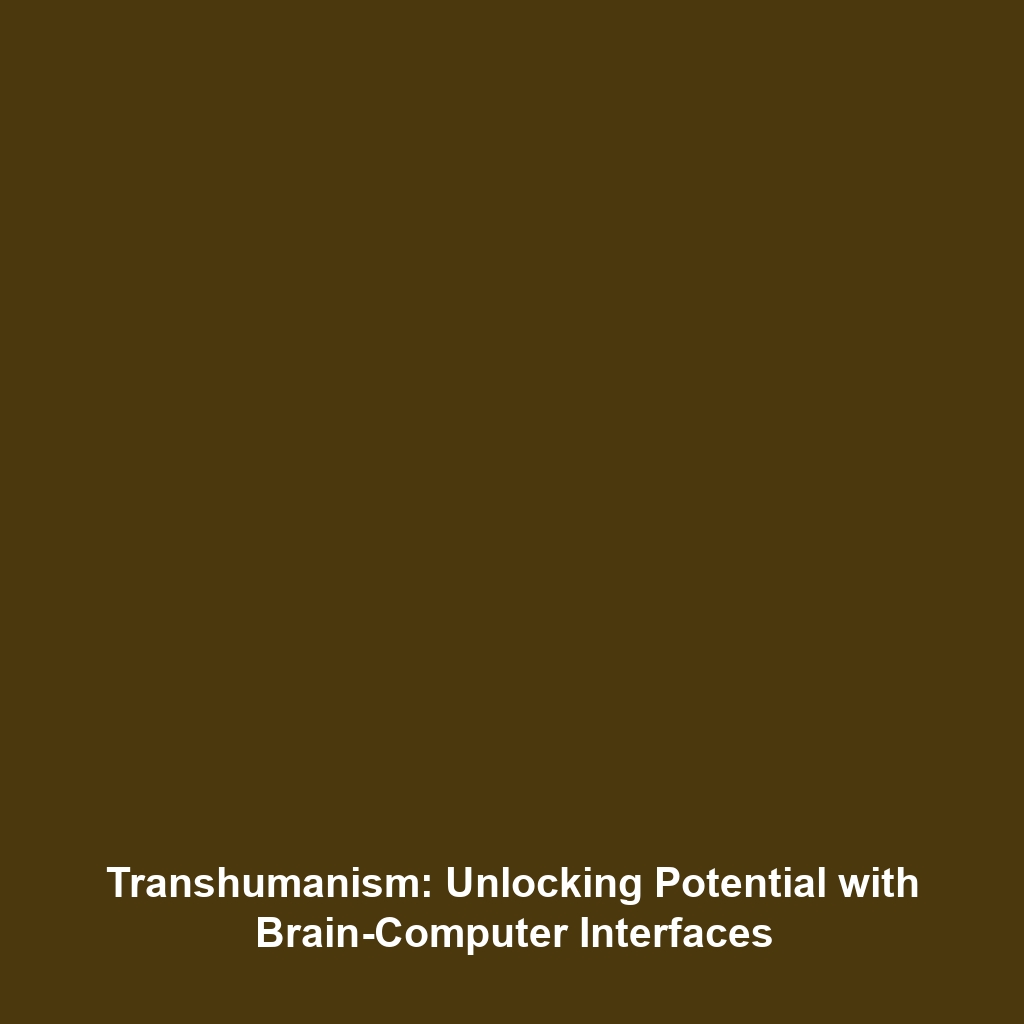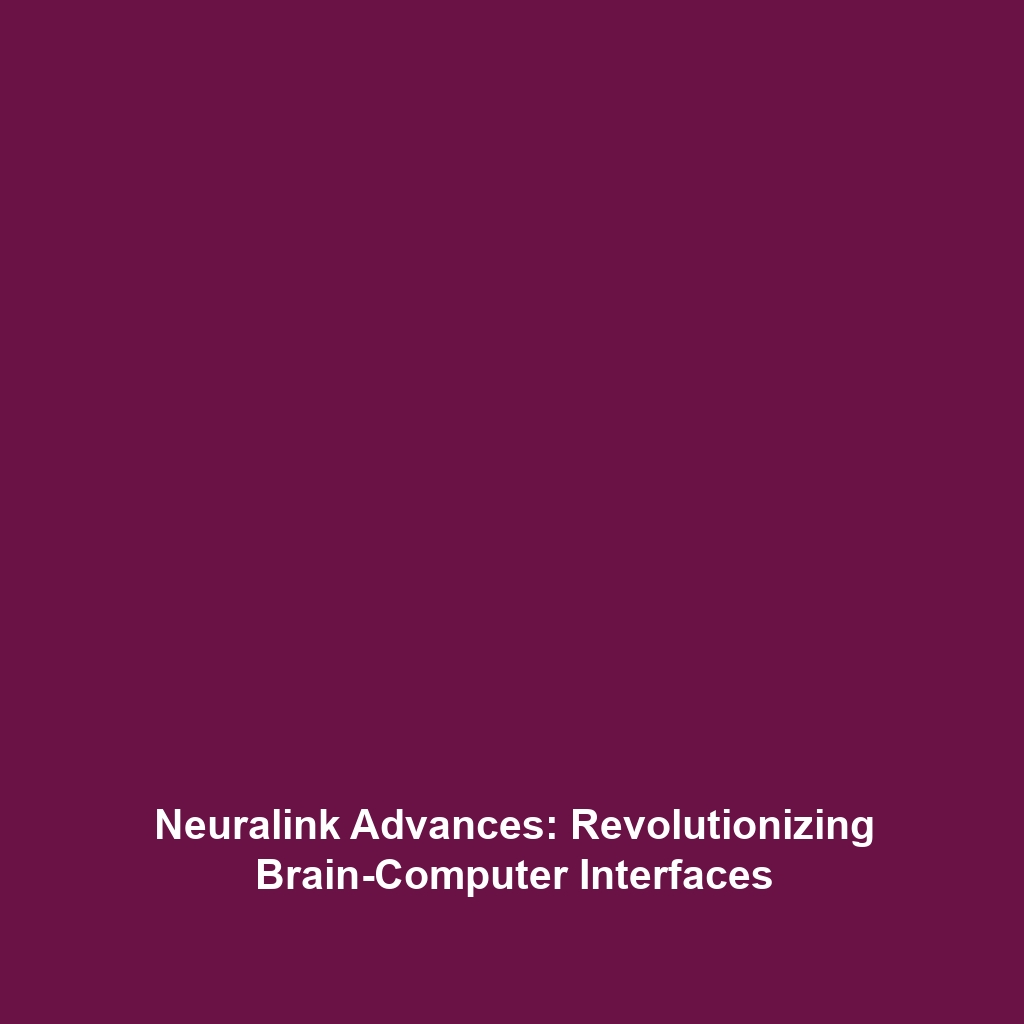Transhumanism and Brain-Computer Interfaces (BCIs)
Introduction
Transhumanism is a philosophical and cultural movement that advocates for the enhancement of human capabilities, especially through advanced technologies such as Brain-Computer Interfaces (BCIs). By bridging technology and biology, BCIs play a crucial role in the transhumanist agenda, allowing seamless communication between the human brain and external devices. This integration has significant implications for health, productivity, and cognitive enhancement, marking a transformative shift in how we interact with technology. Understanding the relationship between Transhumanism and Brain-Computer Interfaces is essential for grasping the future of human evolution.
Key Concepts
Defining Transhumanism
Transhumanism is centered around the idea of improving the human condition through cutting-edge technologies, aiming to transcend biological limitations. This philosophy supports the development of tools that sustain human life, improve mental abilities, and extend lifespan.
The Role of Brain-Computer Interfaces
Brain-Computer Interfaces (BCIs) allow direct communication between the brain and computers. They facilitate various applications, including assistive technologies for individuals with disabilities, gaming, and neurofeedback. BCIs represent a critical technology in the transhumanist movement, demonstrating how technology can enhance cognitive function and overall quality of life.
Applications and Real-World Uses
Numerous applications showcase the integration of Transhumanism and BCIs:
- Neuroprosthetics: Devices like cochlear implants help restore hearing, demonstrating the medical potential of BCIs in treating disabilities.
- Assistive Technologies: BCIs enable individuals with mobility impairments to control prosthetic limbs through thought alone.
- Gaming and Entertainment: Companies are developing games where players can control characters using their brain activity, illustrating a new frontier in interactive entertainment.
These examples highlight how Transhumanism is utilized in enhancing human capabilities through Brain-Computer Interfaces.
Current Challenges
Despite the advancements, there are significant challenges associated with Transhumanism and BCIs:
- Ethical Concerns: The potential for inequality in access to enhancing technologies raises ethical questions regarding fairness.
- Data Privacy: Safeguarding the brain data collected by BCIs poses significant privacy challenges.
- Technological Limitations: Current BCI technology faces hurdles in accuracy and user comfort, limiting widespread adoption.
These challenges present ongoing issues in the realm of Brain-Computer Interfaces and their application in Transhumanism.
Future Research and Innovations
Future research in the field of Transhumanism and BCIs is expected to yield groundbreaking innovations:
- Advanced Neural Interfaces: Next-generation BCIs may provide more precise and intuitive brain interaction.
- AI Integration: The combination of artificial intelligence with BCIs could lead to enhanced decision-making capabilities.
- Brain Enhancement Technologies: Ongoing studies aim to develop methods for enhancing cognitive functions, potentially transforming cognitive therapies.
The future of Brain-Computer Interfaces looks promising with innovative research paving the way for advanced human capabilities.
Conclusion
Transhumanism and Brain-Computer Interfaces offer compelling possibilities for enhancing human abilities and improving quality of life. As technology evolves, it is crucial to navigate ethical considerations and challenges to ensure equitable access to these advancements. For further exploration of related topics, consider reading about neuroprosthetics and the ethical implications of transhumanism.








